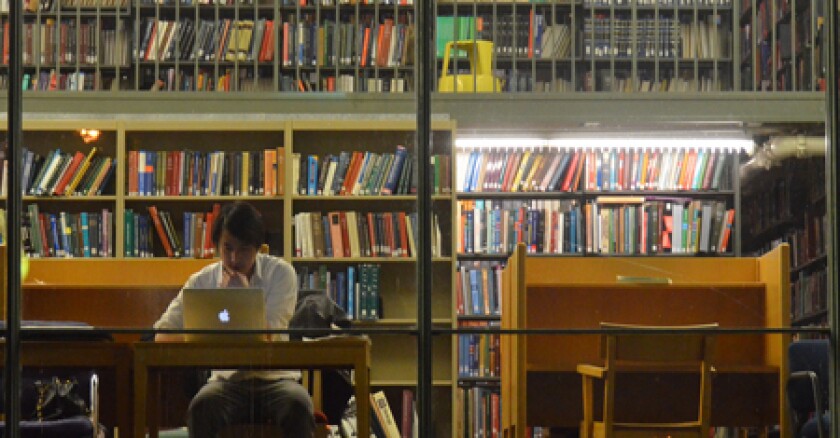In North Carolina, where she previously lived, libraries and school districts were organized by county, and a statewide library system provided equitable research database access to all the public schools.
There's not a similar system in Colorado. In Boulder Valley, she said, school libraries, especially in elementary and middle schools, often can't afford the $1,000 to $1,500 annual fee per database. And not all students have public library cards to allow them to access those resources, including students whose families are undocumented and aren't comfortable providing the information needed for a library card.
So in 2017, she proposed a partnership with the Boulder Public Library to provide database access to all students without the library card requirement. Former Boulder Valley digital literacy specialist Zoe Midler and Boulder Public Library Youth Services Manager Anne Ledford took on the project, working through contract and legal issues.
Fairview piloted the program in the spring of 2019, and it was opened to all students who attend schools in Boulder in fall 2019.
"I'm just so happy that it has all worked out," Rhodes said. "The real push was to give students access to those databases. It's super simple for them to use their student ID number. It's an awesome additional resource for us."
While the pandemic delayed the work to add other libraries, BVSD Technical Services Librarian Rae Ciciora said, the program now includes the Broomfield, Louisville and — just added this month — Lafayette libraries.
The only schools without student ID database access are those in the mountain communities and the district's Erie school, Meadowlark K-8. Because the program uses student IDs, access is based on the school a student attends, not a home address.
While she is working to get access for all students, Ciciora said, she's thrilled that most district students now have this option.
"It's been a long haul," she said. "It's going to be really helpful for research and just answering questions without combing through the Google results. They can get out of the algorithm, paid ad results of Google and get real results."
Students can access the "Student 1" library database program through an app on their school district home page, taking them directly to the databases. From the launch page, they can access databases based on their grade level based on subject level, including recent articles and curated research.
Options include the TumbleBookLibrary, a database of children's e-books; CultureGrams, a database on world cultures, and National Geographic, a database of digital magazines, research articles and books. Many have text to speech options and allow students to change the reading level. The launch pages also provides links to library homework help and tutoring programs.
"As librarians, we're always trying to improve information literacy," Ledford said. "You can't always use Google and trust the source you see. Our databases make it easier to do your research, and it's more accurate."
She said the library so far hasn't been required to pay more to the database companies after adding the student ID option. The program is used most at elementary schools, followed by middle schools and then high schools, she said.
She said her interest in the idea came from her background in school partnerships.
"School partnerships are just really a good use of combining resources and improving access," she said. "When we started, we didn't have a lot of examples of student ID programs. We were the cheerleaders. It was a lot of hard work, but definitely worth it."
©2021 the Daily Camera (Boulder, Colo.). Distributed by Tribune Content Agency, LLC.















